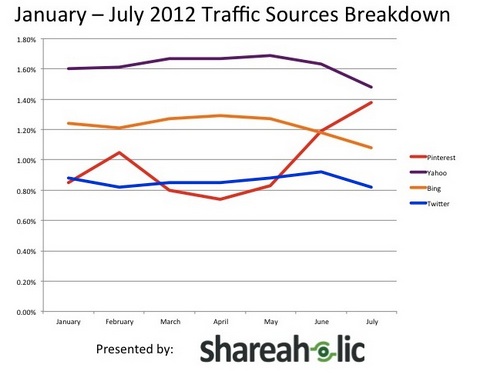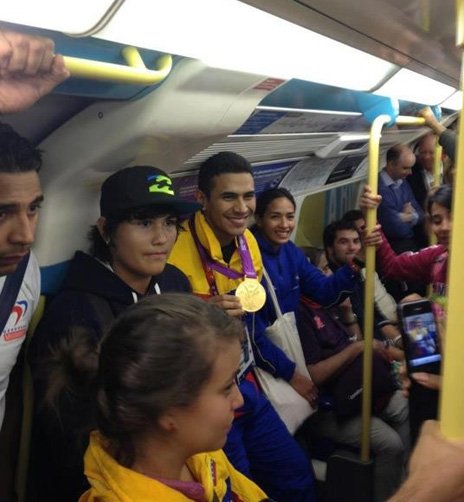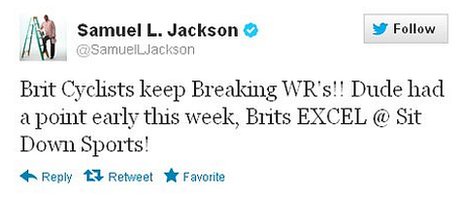We Are Social: Tuesday Tune-Up #51
Going on the hunt for Expedia’s ‘Tag Me if You Can’
We Are Social Sydney have helped launch Australia’s largest online gamification project for Expedia called ‘Tag Me If You Can’. The goal? Tag Nathan Jolliffe of ‘The Amazing Race’ and ‘Celebrity Apprentice’ fame in 15 secret locations around the world, which he reveals through clues in videos to win a share of $150,000.

Advertising watchdog rules that user comments on Facebook pages should be regulated
Last month Australia’s advertising industry watchdog issued a judgment in which it said comments made by ‘fans’ of a vodka brand’s Facebook page were ads and must therefore comply with industry self-regulatory codes, and therefore consumer protection laws. This puts the onus on brands to moderate comments from fans, but also puts Australia’s regulators at odds with the rest of the world. In terms of the ASA regulations, marketers only need worry about what they’re saying on their Facebook page, campaign blog or community, not what members of the public do or say.
Pinterest continues to grow
According to Shareaholic, referrals from Pinterest are growing at a steady rate. As a measure of where Pinterest currently stands, it drives more traffic to sites operating Shareaholic than Twitter and Bing and it’s only 0.10% away from overtaking Yahoo:

Google+ doesn’t appear in Shareaholic’s graphs, but it accounted for a minuscule 0.06% of its referral traffic last month, as opposed to Twitter’s 0.82%, Pinterest’s 1.38% and Facebook’s 6.06%.
G+ social shares lowest compared to Facebook, Twitter and even LinkedIn
Umpf has produced some quite damning, although not exhaustive, research on Google+ activity. They analysed 100 random online entertainment, health, business, technology and general news stories and looked at how many times each story was shared by Facebook, Google+, LinkedIn and Twitter users:

Facebook gambles on its future
Having come under increasing pressure from Wall Street in the last month, in what could be seen as a desperate attempt to generate revenue, Facebook have opened their doors to its first real-money gaming app: Bingo Friendzy Due to regulatory issues, it’s only been launched in the UK so far, so using Facebook’s age-gating and geo-location technology, Bingo Frenzy and its corresponding News Feed stories will not be visible to users under 18 years old or anyone outside of the UK.
Bingo Friendzy has been made in a partnership with Gamesys, one of the UK’s biggest online gambling providers. The British company will make the games as part of its arrangement with Facebook and the social network will promote them.

Facebook analytics gets better with fan and non-fan post impressions
Facebook is adding four new metrics to Insights that give Page owners a better understanding of their audience. It is now possible to see differences in Page views between fans and non-fans in reference to both normal and paid impressions. This feature was requested by our very own Jamie Robinson, We Are Social’s UK’s Research & Insight Director.
Facebook optimises ad tool
Facebook has taken steps to make their sponsored ads more accessible for a wider-audience by simplifying their self-service ad tool. The change simplifies the ad-creation process and by automatically creating Sponsored Stories to run along with traditional ads, Facebook can get more of these social ads in the system. As targeting options and ad types are getting increasingly complicated, this is an important change for Facebook in appealing to smaller businesses.

Facebook looks for mobile revenue boost
Facebook have begun to roll out the option for advertisers to promote their mobile apps. The promoted app will surface as a recommendation alongside apps that are being recommended organically based on a user’s history and social graph under the headings “Try These Games” and “Try These Apps”, but will be flagged with the text “sponsored.” Like any other ad, it can be targeted to users based on age, gender, location, likes and interests. These ads will aim to result in an installing of the application and work on a ‘cost-per-click’ structure.
Pinterest opens for business
After a long start-up period of ‘invite only’ registration, Pinterest has finally opened its doors to signups. Time will tell if this will change the path of the young network.
The social Olympics review: It’s a record breaker!
It was billed, and prepped as the pinnacle of social media usage, and London 2012 certainly lived up to the expectation with more than 150 million tweets being posted inside 16 days. The height of activity came during the Closing Ceremony with the Spice Girls and Take That aiding more than 116,000 tweets per minute. Within the sporting coverage, unsurprisingly, Usain Bolt’s electric 19.32-second 200m with 80,000 tweets per minute, which beat his 100m at 74,000 tweets per minute. Bolt was joined by Michael Phelps, Tom Daley and Andy Murray in a top 10 list of Olympians garnering more than 1 million tweets during the games:
- Usain Bolt (@UsainBolt)
- Michael Phelps (@MichaelPhelps)
- Tom Daley (@TomDaley1994)
- Ryan Lochte (@ryanlochte)
- Gabby Douglas (@gabrielledoug)
- Andy Murray (@andy_murray)
- Kobe Bryant (#GetKobeOnTwitter)
- Yohan Blake (@YohanBlake)
- Lee Chong Wei (@Lee_C_Wei)
- LeBron James (@KingJames)
The Social Games has also been groundbreaking for the sharing of special Olympic moments, such as the Venezuelan gold medalist travelling home on the Tube.

Samuel L. Jackson almost stole the stage with his take on the events on London 2012.

With all this talk about Twitter and Facebook, it is easy to forget that there are other important social networks that are rarely mentioned in the West like China’s Sina Weibo. The 10 million tweets during the Opening Ceremony (more than the whole of the Beijing Games) was dwarfed by the apparent 119 million comments on China’s version of Twitter. One explanation for this higher comment activity is that comments on posts can be added into your Sina Weibo news stream.
Topshop lives up to its ‘top’ billing on social
Of the UK’s top 100 retailers, Topshop holds the top slot for fans on both Facebook and Twitter, according to new research from eDigitalResearch. Although big numbers aren’t everything, Topshop has the highest ‘Talking About’ number on Facebook of the retailers group as well.
Greggs UK on the lookout for its biggest fans
If you fancy dressing up like a sandwich, you might just be the winner of Greggs’ crazily simple new Facebook campaign, in which the bakery asks its fans to show just how much they love it. And how much they are willing to do for a free lunch every week for the next year. Now where did we put that sandwich costume…
How brands should react to being brandjacked
Maybe there does come a time to grow up, and those spoof Twitter accounts just aren’t cutting it anymore. Northcliffe, the regional newspaper division of British publisher DMGT, took legal action in the US to unmask a persistent anonymous Twitter impersonator of its chief executive, alleging criminal behaviour. But such heavy-handed actions can sometimes backfire. The press attention added hundreds more to the offending account’s followers, and DMGT has since dropped the case. Robin Grant, We Are Social’s Global MD, told the Financial Times:
The brand’s response can be the trigger for a crisis. Brands need to show that they’re listening and respond in a human way
And maybe being human means ignoring it? That’s what Shell has done to Greenpeace’s latest PR stunt called Arctic Ready, and although Greenpeace’s work has made a small splash, it definitely hasn’t had the lasting harmful effects on the brand that some of Greenpeace’s other campaigns have.